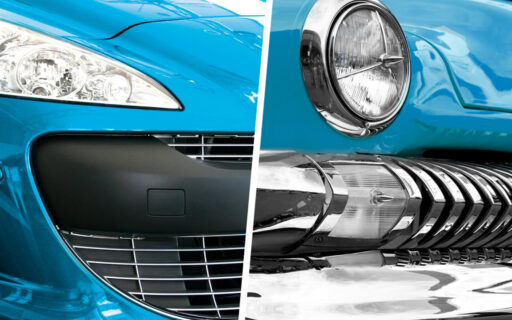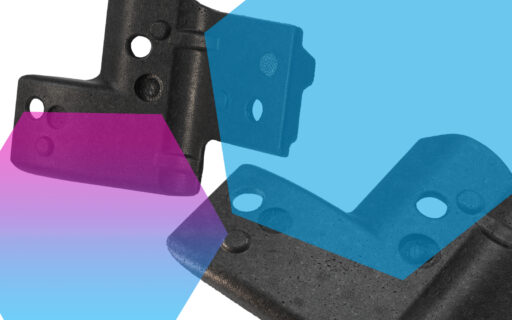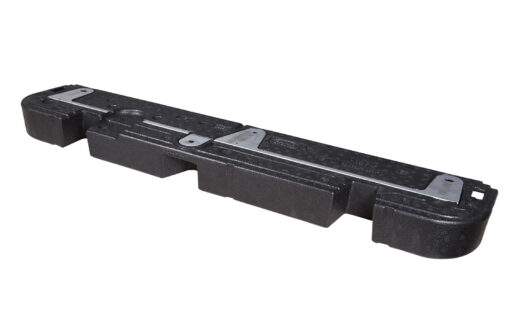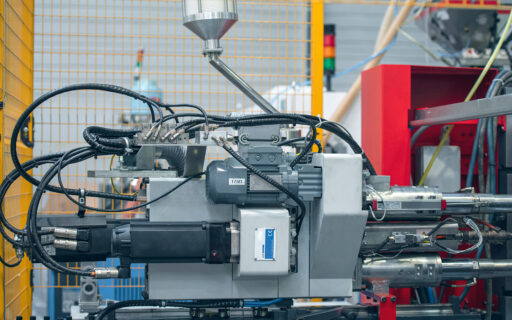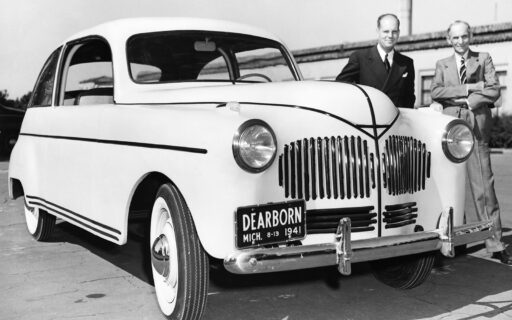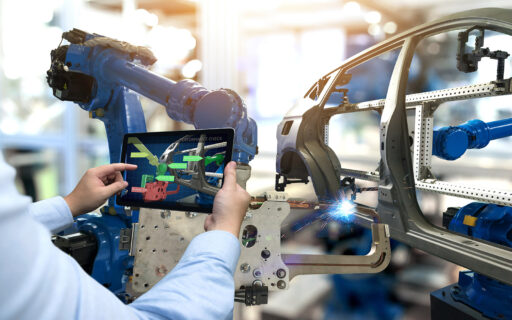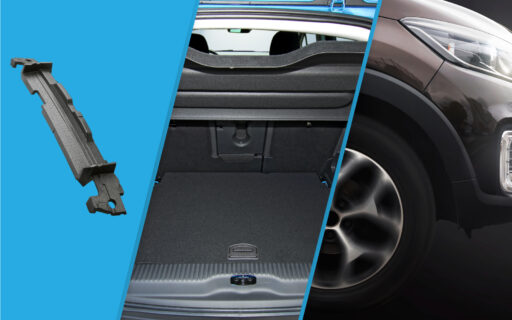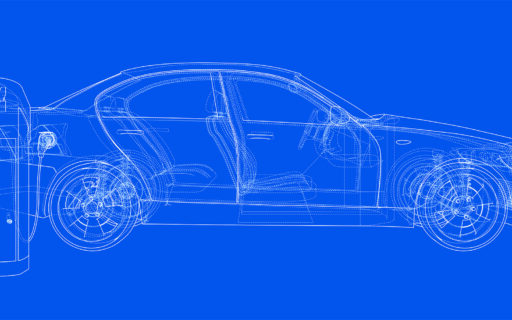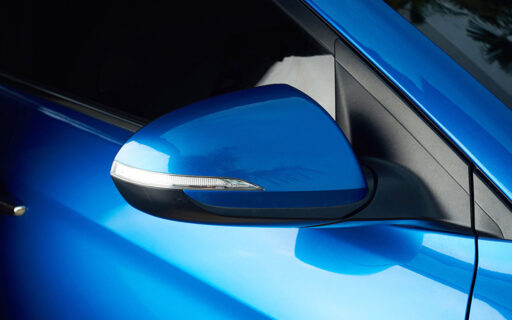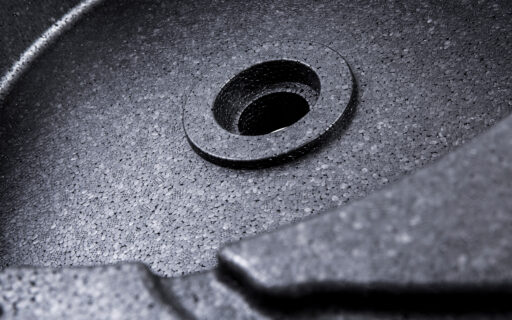Knauf Automotive
Plastics application
Innovative applications of plastics in cars
It is estimated that the average car contains 40 to 100 kg of various plastic parts, accounting for about 10% of its total weight. With the rapid development of processing technology, designers are gaining more and more opportunities to use plastics in modern structures. Two particular plastics play an essential role here, namely expanded polypropylene (EPP) and various materials used in injection molding technology, which, thanks to their unique properties, are revolutionizing the automotive industry. Expanded polystyrene (EPS) has a well-established role in the packaging industry, providing an optimal material for protecting sensitive auto parts in transport.
Latest articles
Advantages of plastics in vehicles
One of the main reasons why automotive plastics are gaining more and more popularity in the automotive industry is their lower density compared to traditional materials such as various alloys or sheet metal. Plastics tend to be light in weight while maintaining excellent strength characteristics, resulting in improved performance and reduced fuel consumption.
Initially, plastic components were used mainly for car interior finishes. Today, however, they are replacing more and more exterior components previously made of body sheet metal, such as door components, fenders and bumpers. According to estimates, the use of plastics in cars allows an increase in range of about 1.5 kilometers per liter of fuel. Such a difference in range is particularly important in the context of the growing popularity of electric vehicles.
EPP and EPS – new generation of plastics
As technology advances, newer types of plastics appear on the automotive market, offering even better properties. Two that particularly stand out in this context are expanded polypropylene (EPP) and expanded polystyrene (EPS).
Expanded polypropylene (EPP)
Expanded polypropylene foam is a lightweight yet strong material that is ideal for safety-related components. Thanks to its ability to absorb and dissipate energy, EPP is commonly used for bumpers, interior door panels or structural components of car seats. The material also has high impact and vibration resistance. Furthermore, EPP has what is known as shape memory, which means that components return to their original shape after the cause of their temporary deformation ceases. These advantages make EPP an ideal choice for automotive applications.
Expanded polystyrene (EPS)
Expanded polystyrene foam is another plastic that is widely used in the automotive industry. Like EPP, EPS is characterized by low density while maintaining high strength. In addition to being lightweight, the material has favorable thermal and acoustic insulation properties. EPS is widely used in the production of transport packaging used in the automotive supply chain, providing optimal protection for sensitive components or subsystems. In recent years, EPS has become increasingly successful in the electromobility sector, where one-way polystyrene packaging is used e.g. to transport batteries for electric cars.
Read more on the properties of plastics.
EPP and EPS applications in the automotive sector
Plastics, particularly EPP and EPS, are finding more and more applications in various areas of automotive design.
Safety components
One of the most important areas of use for plastic components is in the safety-related segment of the automotive industry. Materials such as EPP, with their ability to absorb and dissipate energy, provide excellent protection in the event of a collision. Injection-molded automotive components, such as bumpers and interior door panels, minimize the risk of injury to passengers.
Thermal and acoustic insulation
Another important use of plastics in automobiles is to provide optimal thermal and acoustic insulation. Foam materials, such as EPS, effectively protect sensitive electronic components from excessive heat or noise. As a result, vehicles are more comfortable and energy efficient.
Finishings and interior components
Plastics are also widely used in automotive interior finishings. Both EPP and EPS can be molded into any shape, allowing the creation of aesthetically pleasing and functional elements such as car seating components, door panels, and sun visors. These materials are not only lightweight, but also easy to work with, making it easy to personalize a vehicle’s interior.
Housings and covers
EPP is also readily used for the manufacture of various types of housings and covers in automobiles. This material, thanks to its high strength and resistance to damage, protects sensitive components from external factors such as moisture and vibration. An interesting application of plastics is battery insulation systems – EPP is used, for example, in such components as battery cell separators (thermal insulators), thermal and electrical insulation, or components for connecting batteries and battery packs that act as connection buses.
Texturing as a decorative feature
In addition to high technical performance, foamed plastics can also serve as an attractive aesthetic solution. R&D experts at Knauf Industries developed a palette of 36 textures in 4 product lines, in keeping with the latest design trends. Graphic shapes applied to the surface of EPP make this material an attractive alternative to traditional foam elements, which require additional decorative finishing. This gives designers new opportunities to shape the appearance of vehicle components.
Learn more: EPP texturing
The future of automotive plastics
The future of automotive plastics depends on technological innovation, both in terms of the materials themselves and production methods. With the development of plastics processing technologies, their use in the automotive industry will continue to grow, opening up new opportunities for designers and developers. At the same time, the use of fully recyclable materials is part of the idea of sustainable development, reducing the negative impact of the industry on the environment.
At Knauf Industries we specialize in the production of EPP and EPS components, particularly injection molded components. Our proposals are precisely tailored to the needs of auto manufacturers, and all Knauf Industries solutions are created using the latest technologies, resulting in the best performance for automotive companies.


